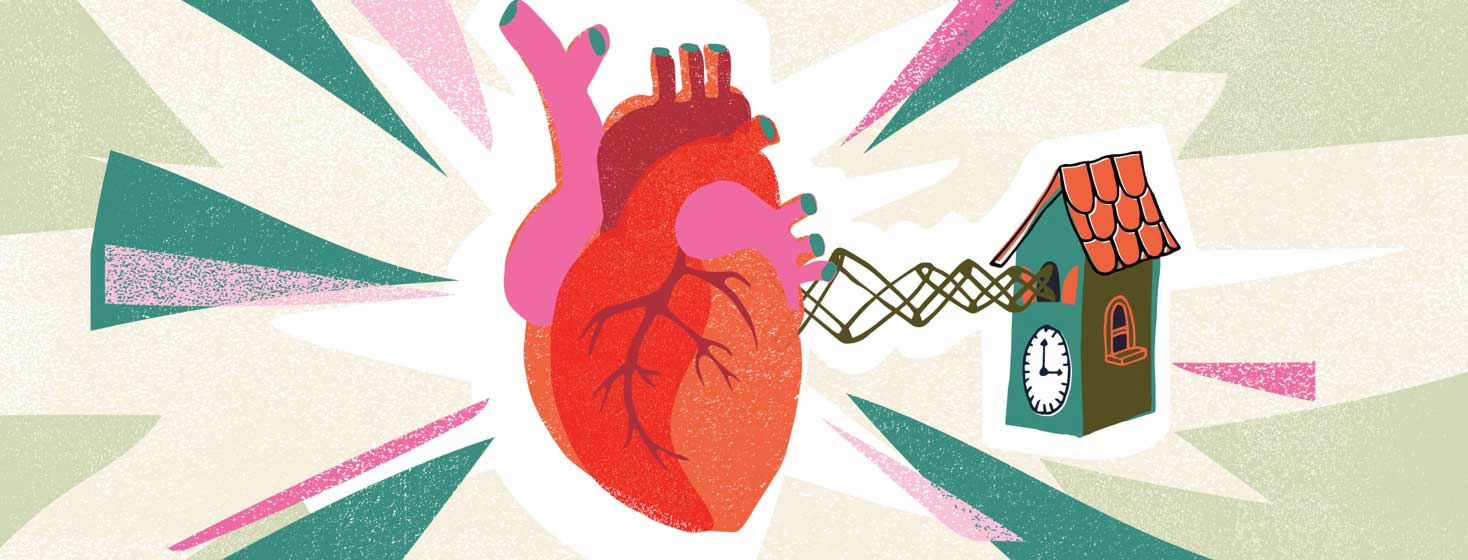Ask the Advocates: Lifestyle Changes (Part 1)
Editor's note: This is part 1 of a two-part series. Part 2 can be found here.
We asked three of our advocates, Will, Christopher, and Daniel, "How has living with a heart condition impacted your day-to-day experience?" Check out their answers below.
The impact of a heart condition
Will
My heart condition is Coronary Artery Disease. I was diagnosed in 2010. I had two blocked arteries. A stent was installed in one of them, the left anterior descending, and I started taking aspirin and a statin. In 2012 I had a heart attack and another blocked artery was discovered. I had another stent installed. I have not had any problems since then. I have yearly check-ups with my cardiologist and I continue to take medication.
I retired a year after my diagnosis. My eating habits improved and I started getting more exercise. I lost weight and started feeling better physically. I continue to follow that plan on a day-to-day basis. My heart condition made me more mindful of what I can do to not only ensure my health for today but to maintain the overall quality of my life for the future.
In that sense, my diagnosis was a blessing in disguise. Now in my early seventies, I am healthier than when I was in my early sixties. Heart disease has allowed me to create a design for living that has yielded more opportunities than limitations at this age. I would rather not have heart disease, but I am grateful I survived my heart attack and made the lifestyle changes necessary to improve my health for the long run.
Christopher
The biggest impact my heart condition has had on my day-to-day life is the anxiety I have developed. I have never been an anxious person until I developed my heart problems. Many people, especially my age, go through life not worrying about waking up tomorrow or ending up in the emergency department fighting for their lives. Every little pain in my chest I analyze where it came from, what could have caused it, and is it my heart or something else.
Anxiety can be just as impactful on day-to-day life as a physical ailment. Being fearful of little chest pains or constantly checking your heart rate when you are doing something physical strictly out of fear of something bad happening can negatively affect all aspects of your day.
Thankfully, I have not felt physically limited, but I do take care not to push myself too often or too hard. When I do, I seem to need a few extra hours of sleep to recover the next day, but other than that, I am doing well in the physical aspect. I also have not had to worry too much about depression which can be common with a chronic condition. I don’t think I do anything special to avoid depression. I have always been a go with the flow kind of person which I think helps in that aspect.
Daniel
After my diagnosis of cardiovascular disease and a subsequent triple bypass, my day to day existence focused on two things: physical recovery from the bypass and the curiosity of how this would impact my life.
At first, it was all about the physical. The invasiveness of a cardiac bypass, of course, is intense. Having been in reasonable shape at the time, my physical recovery went quickly. But the knowledge that I now had this disease has played an annoying song in my mind a number of times throughout the years. About five years ago I again experienced chest discomfort and shortness of breath and discovered that I again had a blocked artery which was followed by a stent implant. I had to take blood thinners over the course of 18 months which created small problems with minor cuts, but that was all. I returned to normal and am still in good shape physically: hiking and swimming and biking.
But there is still that knowledge that despite my efforts with meds, activity, and healthy food (mostly) my body will once again create those blockages that require a phone call to my doctor and a visit to the hospital. And that is what creates the mental issues. But I know that having survived the initial problem--one that often results in an actual heart attack or worse--I am a very well-monitored guy. I know my body and when there is something wrong. And I have no problem calling my doctor, who also knows I know my body.
Thus my day to day life is generally one of “normalcy.” I’m a 65-year-old youngster. I look at my condition as a wake-up call to take care of myself and to listen to those smarter than me. There are times when my mind may dwell on what could happen to me down the road, but I don’t--and can’t--let it dictate the joy of the life I choose to lead today.

Join the conversation